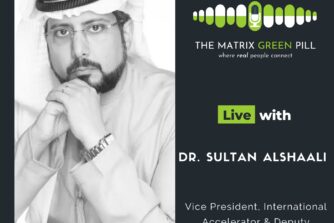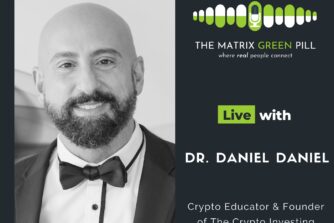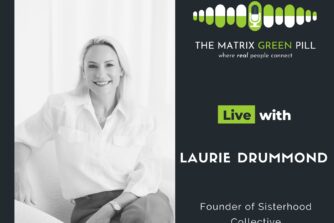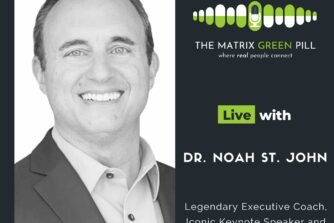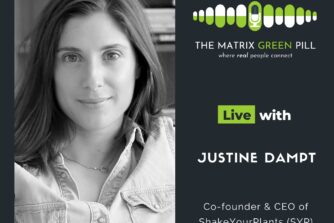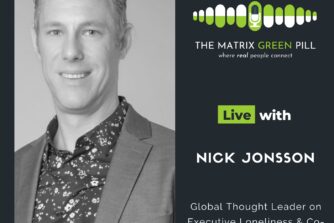Director of Opportunities in the "ImInclusive" App
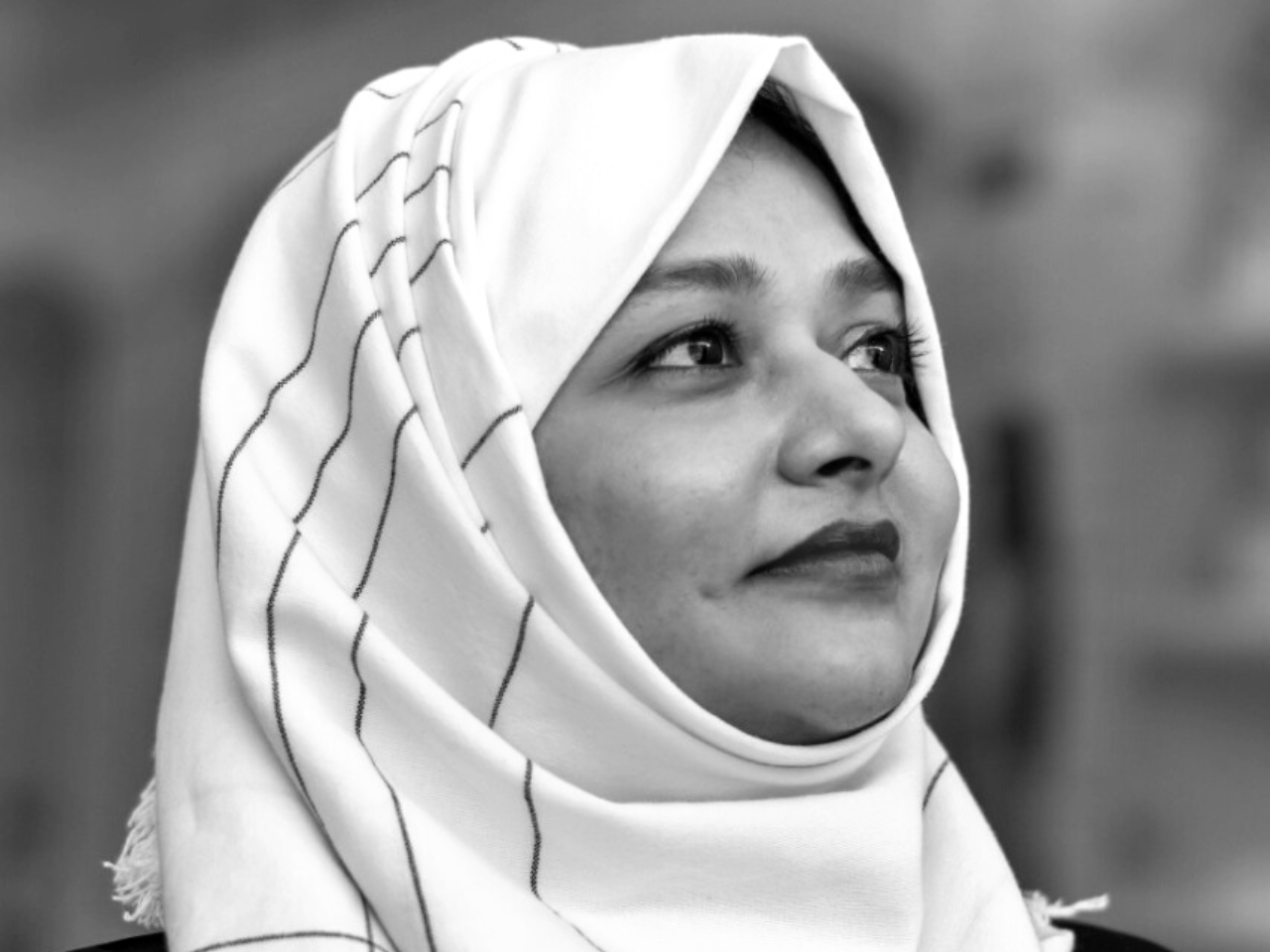
About Saira Sayed
Saira Sayed is a Proud Person with Disability and is empowered with a wheelchair. She carries this identity of honor with pride after her diagnosis of Limb-Girdle Muscular Dystrophy. Motivated to create an impact, she champions Disability Inclusion and works with Employers to connect People with Disabilities to opportunities. When Saira is not researching the newest accessibility-related applications and news available, she loves to play with her cat, Ginger, and is an avid reader.
About this Episode
In this episode, we talk to Saira who shares more about Limb-Girdle Muscular Dystrophy as well as the app, “ImInclusive” which provides job opportunities for People of Determination.
Tune in for an inspiring conversation!
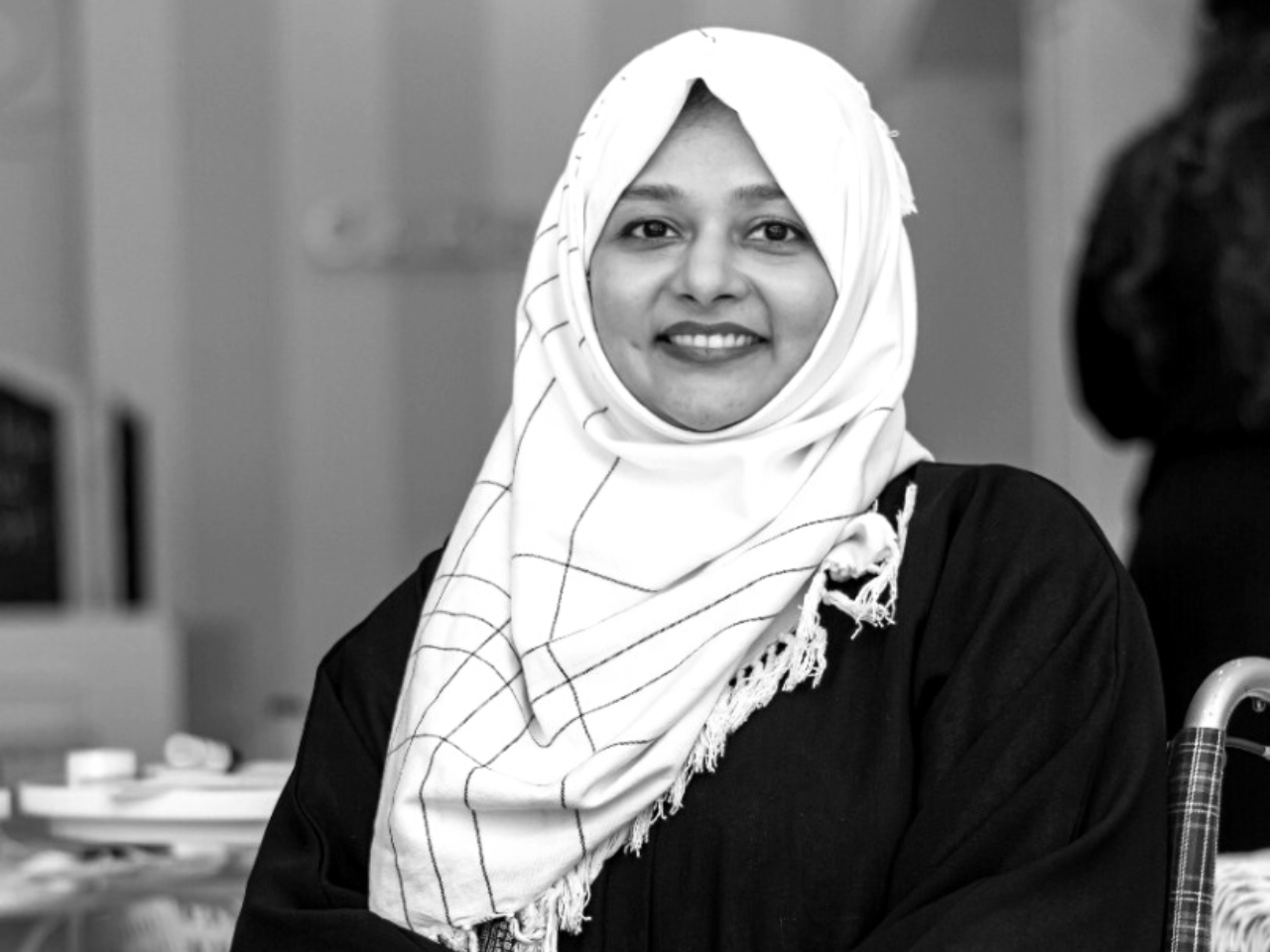
“It helped me to accept it that okay this is something that I’m going to live with. It’s going to be okay and even after my diagnosis.”
Saira Sayed
“ImInclusive is a platform which connects people who have determination and employers who may or may not be on the pathway for inclusion at the workplace.”
– Saira Sayed
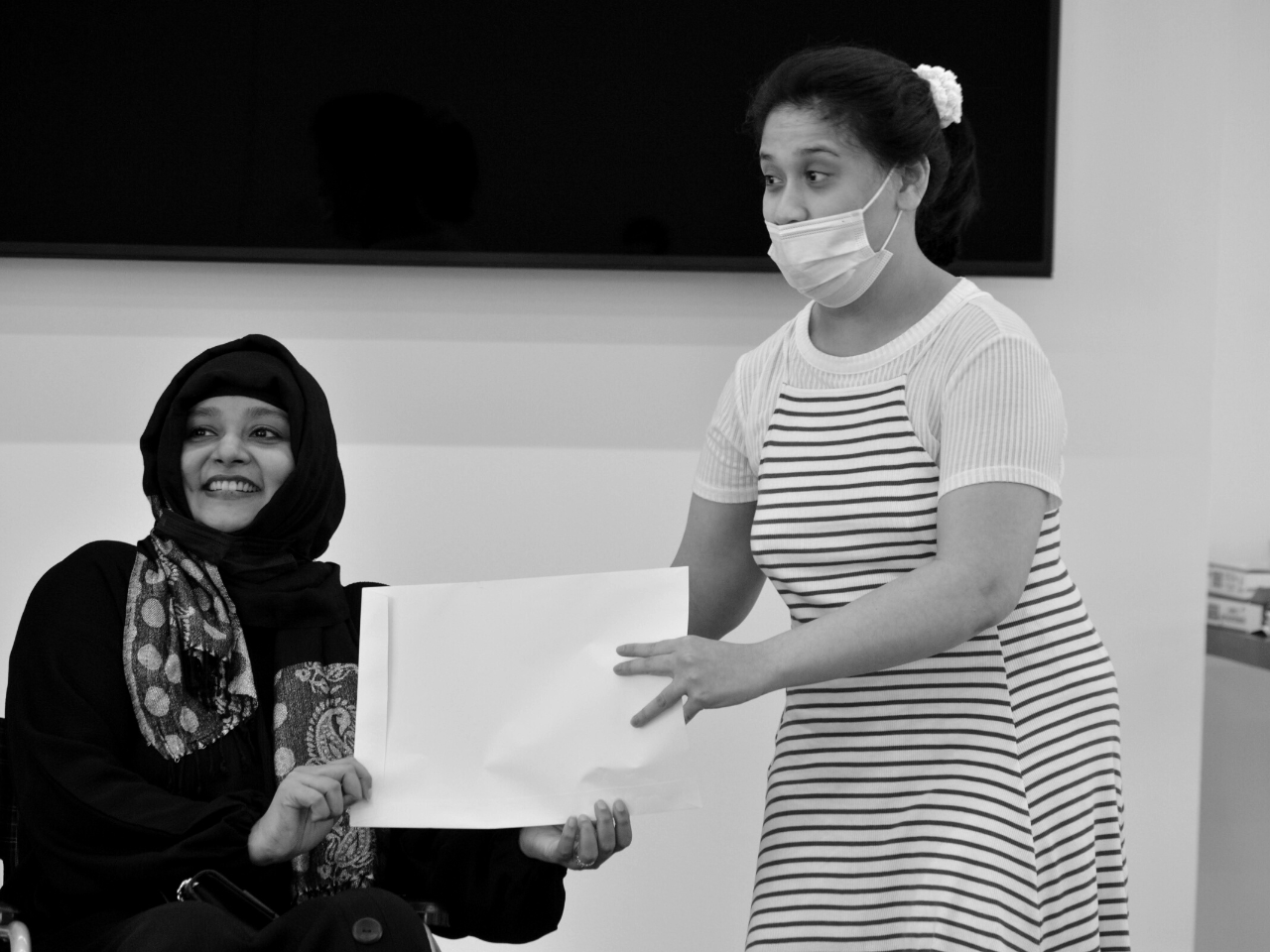
Show highlights
“I connect people of determination to opportunities, making an opening up a safe space for employers to understand that inclusion in the workplace is important and how they can integrate people of determination and people with disabilities, and create opportunities for people of determination in their workplace.”
Saira Sayed
“I think the pandemic made people stop and realize the things that could be done differently.”
Saira Sayed
Useful Links
Website: https://www.iminclusive.com/
Instagram: https://www.instagram.com/iminclusive/
Facebook: https://www.facebook.com/Iminclusive/
Twitter: https://twitter.com/iminclusive
YouTube: https://www.youtube.com/channel/UCs3byOnGxz6MAKfb31aCc2A
The Matrix Green Pill Podcast: https://thematrixgreenpill.com/
Transcript
00:11 Hello and welcome back to the Matrix green pill Podcast. I’m Hilmarie Hutchison and today I am so honored to have Saira Sayed as my guest on the show.
00:23 I absolutely love her positive outlook on life. Saira is the director of opportunities for people of determination at I’m inclusive, and she describes herself as a proud person with disability.
00:38 She has not led her disability slow her down in any way. And she says that she’s empowered with the wheelchair. What an amazing attitude.
00:48 Saira champions disability inclusion and works with employers to connect people with disabilities to job opportunities.
00:56 And when she’s not researching the newest accessibility related applications and use available. She loves to play with her cat, ginger, and is an avid reader.
01:06 Saira, welcome and thank you so much for joining me today.
01:11 Thank you. It’s an honor for me to join you Hilmarie on this podcast, you have invited so many guests. Previously, who have spoken about disability inclusion, people of determination so it’s an honor for me completely.
01:25 Thank you.
01:26 I’m so excited to have you here. Many of our listeners might already know your story and who you are but for those who don’t, or for those who would like to know a little bit more about you could you please share your story with us.
01:38 Absolutely. So, we are in a podcast setting and people may not be able to see what I look like. So I’ll give you a little bit of visual experience of what I look like.
01:49 I have a very round face.
01:50 I have black eyes, black hair and I usually use a hijab. I do keep my smile on for the most of the time and I have a very slight dimple on my right side.
02:01 That is a visual description of me, to tell you a little bit about my story is, I am someone who was diagnosed with muscular dystrophy. I was diagnosed at the age of 16. It was not easy for me to get that diagnosis and I have lived with disability in a way where it started very gradually to. Now I’m using a full time wheelchair.
02:28 It started at 16. I’m 31 years old now, using a wheelchair full time, the gradual transition of me from dancing running, walking, and now using a full time wheelchair is has been a journey itself and
02:40 Currently, I am working with people with disabilities in the field of disability inclusion for employment. That’s about it. That’s about me.
02:47 That must have been quite a shock at 16 to be told that you’ve got this kind of condition.
02:55 Does it take you long to process that?
02:58 No, because it took me it took me, my parents, my family to get the diagnosis. It took us two years to get the complete diagnosis, I could say, a year almost, and when I was diagnosed there was no roadmap given to me by the doctors because muscular
03:15 Dystrophy itself. They only know that it progresses, it’s a progressive genetic disorder. The muscle gets weaker and weaker so there is no specific prognosis the doctor can give because it is person to person case by case how it progresses.
03:28 I didn’t accept it very quickly. My parents were also like, how are you okay with it but because it took me so long to get to the wheelchair part.
03:37 At this stage, I think that progression with losing muscle was also a transition itself. But, yes, the way you know the doctor said that you may lose a lot of mobility, but it was not said in a way which was harsh.
03:50 So it helped me to accept it that okay this is something that I’m going to live with. It’s going to be okay and even after my diagnosis, it was never like I have all of a sudden, you know, I’m different.
04:02 It was never that. So the support of my parents, my sibling also helped me to take this in a way which I accepted it, and I digested it and I was okay with it.
04:12 That’s amazing, because you know, 16 is right in the middle of your teenage years, teenagers already so self conscious and it’s already so many changes going on, so that you that you took it so well and as you say adjusted with it.
04:24 But as you also say, because of it sort of happening, slowly, in a way, helps you to to transition with it. I imagine.
04:33 Yes. Do you have to undergo any kind of treatment?
04:36 Unfortunately.Today, in 2022, there is no cure for muscular dystrophy.
04:43 So there are no treatments. As such, or there is no medication that can stop my muscles from deteriorating. What I can do is do my physiotherapy exercises and keep my muscles moving so that whatever capability my muscle has if it’s going to deteriorate,it reduces the speed of the deterioration. But there is nothing that we can do because genetically we produce a chemical called dystrophin, and my gene is missing the gene that produces dystrophin.
05:12 So there is nothing. Right now, as of yet that can create dystrophin in my body so only physhiotherapy is something that can decrease the deterioration speed.
05:23 It just slows it down. So how often do you have to have a therapy?
05:28 I am prescribed to do physhiotherapy twice a day. If I were to go to a physical therapist for sessions, it would be once a month or a three times a month to see an expert, to see a physiotherapist, but I have to do exercises on my own, which I’m very honestly going to share, I’m lazy in doing them, I do make sure that at least once a day I’m working out.
05:50 What are some of the challenges that you face that others might, or that might not be obvious to others?
05:57 For muscular dystrophy. One of the challenges that we faced initially was, it is said to be a rare disorder, but there are many people in this world who do live with it. So finding that community of people who are living in the same condition starting from diagnosis, and the do’s and the don’ts doctors may not be the best people to tell you because we don’t often need to see the doctor because there is physically wrong with us so we we may not need to go to the doctor’s office again and again.
06:27 But to have that community who lives with this diagnosis is very hard to find and if we do look for them in proper ways we can find them on Facebook, and there are specific institutes that are doing research on finding a cure. And let’s say for example I live with LGMD to be the full form is limb girl Muscular Dystrophy type, to be, if I go and connect with institutes who are doing researches that helps for the Research Institute to see what is the condition of the diagnosis and what is it that they are living with, and what inputs they require so going and finding the type of muscular dystrophy you have is very important.
07:11 And then reaching out to organization or Institutes who are doing the research is very, very important.
07:17 I would definitely, highly recommend, if anyone does have diagnosis of muscular dystrophy, to get genetic testing done so that it is defined and it is scientifically proven that you have a specific type of muscular dystrophy, because if you’re not doing the genetic test, it may not prove, which type do you have and it is very important for researchers who are working very hard to find a cure to know what type of muscular dystrophy you have.
07:45 That’s very interesting. Very good advice.
07:47 Now, let’s shift gears a little bit and let’s talk about I’m inclusive.
07:54 Can you tell us a little bit about that?
07:55 Absolutely. So I’m inclusive is a platform, which is founded by a founder, who is a sibling of a person of determination, the app is a hub for people of determination and employers who may be on their journey of inclusion for people of determination specifically employers. People of determination who are seeking opportunities, whether it be a full time role of freelancing opportunity or entrepreneurial opportunities.
08:25 I’m inclusive is a platform, sort of a hub, which connects people have determination and employers who may or may not be on the pathway for inclusion at workplace.
08:36 What an excellent platform, what an excellent idea to have come up with something like this. So what is your role at it, I’m intrusive.
08:45 My role at I’m inclusive is, I’m the matchmaker. I connect people of determination to opportunities, making making an opening up a safe space for employers to understand that inclusion at workplace is important and how they can integrate people of determination and people with disabilities, and creating opportunities for people of determination in their workplace. So I match make in the sense where one of the hats that are there in the organization is to sit with people of determination to understand what is it that they are looking for and then connecting them to correct employer or client who is open to integrate people with disabilities at workplace.
09:29 Excellent. So, is it an online platform, only or is there an actual app mobile app?
09:34 It is an online platform, a web platform but it is also available on Android, to download and not just on the platform we work off the platform as well to connect employers and job seekers for opportunities.
09:49 That’s fantastic. So has the pandemic of the last two years had an impact on the number of people of determination were able to maybe get promote, or freelance type job opportunities, or have you not seen any change at all?
10:06 Absolutely. I think pandemic made people stop and realize the things that could be done differently.
10:15 Pandemic has given people work from home opportunities.
10:20 You know you and I are connecting from different areas and it’s one online platform that is connecting us today.
10:26 Pandemic has also opened up part time, freelancing roles as well and not just the pandemic, the UAE government also has now laws that allows people to work part time.
10:35 So, in addition to work from home, they’re part time opportunities, freelance opportunities that are now available. People are more open to being flexible.
10:45 Yeah, I would imagine that for some people the challenge, maybe as you say with the wheelchair, having to go through an office that may be does not have wheelchair’s accessibility or is not as comfortable working from home being in your own environment but still being able to connect via computer and still do all the work that you’re able to do must make life a lot easier. In the past where everyone felt like the head to go to an office to get their job done.
11:10 Absolutely, yes.
11:11 I’m inclusive, something that’s purely in the UAE, or is it international or in how many countries, is it available?
11:18 I’m inclusive is a global platform.
11:22 We are focusing execution in the Middle East and North Africa.
11:26 So if somebody wanted to make use of the service, how would they go about contacting I’m inclusive and sort of what are the steps that somebody would go through?
11:36 Let’s say for example if you are an employer or a business owner who may or may not have thought of, including people with disabilities.
11:47 If you have never thought of, including people of disabilities and you are currently at the stage where you think that you know you’re not ready to employ people of determination what you can do first thing is, look at your service that you’re providing, look at the product that you’re providing.
12:00 Is it catering to people of determination in your physical space?
12:05 Is it accessible to people of determination and I’m not just saying about physical access, but also with the mindset, because there are disabilities, which are visible and then there are invisible disabilities as well.
12:16 Are you are you a business owner who is catering to all needs, and all abilities?
12:22 If you are an employer who has job roles open or are thinking of hiring. Are you thinking of also including people with disabilities or its exclusion that you’re working towards, what you can do is you can go to the IM inclusive website and you can create your profile as an employer and start posting jobs, and what the platform will assist you or empower you with is providing accessibility accommodations that you can open up for that specific job road.
12:53 If you are a person of determination, who is looking for opportunity maybe start with a volunteering internship or full time or part time freelancing role, or you are an entrepreneur, you can create your profile as a job seeker, have all your details added on your own profile created, add everything that you want to if you have any art, if you are creating an introduction, put it on the platform on your own profile and the platform allows employers to have visibility of the applicants.
13:25 And for people of determination to look at what opportunities employers are posting. So it is quite visible and transparent and we welcome everyone.
13:32 And so what I’m hearing you’re saying is that it starts with mindset. Having that open mind, that open idea to start including first of all looking at your product or service, and then also at your employment policies, maybe. To look at your employment policies and to be open from the outset, add giving opportunities, and to be inclusive in those policies, right from the outset. I love that.
13:57 Sometimes when I sit with people, we get questions or we get statements like we don’t see people of determination a lot, or how do we know what’s of talent is available.
14:07 That is because you may have not thought of inviting people with disabilities, or maybe you’re scared or hesitant of offensive of being offensive to someone by using a wrong terminology or not knowing the right word but when you start that
14:24 Okay, I’m going to I’m going to create an impact or I’m going to open up doors. There is no barrier.
14:30 There is only you yourself are stopping from inclusion.
14:35 I love that, that’s excellent so yeah we need to go back and change our mindset and be open to these opportunities and I’ll admit, I’ve always been proud of the fact that at Matrix we are an inclusive company, because we have very multicultural, it needs to go further than that, it needs to really open up the opportunity to everybody. So I think this is a very good message and I think we need to have more awareness, as you say, of where we can find people with disabilities that are willing to be part of the workforce and I think a platform like I’m inclusive is absolutely brilliant in making that that possible.
15:08 So thank you for all that you are doing and thank you to the founder for creating this brilliant platform.
15:14 Thank you for allowing me to share my thoughts and to share about what we do at I’m Inclusive.
15:20 I’m not sure if we’ve covered this but I’m going to ask this question, anyway. What should a business owner do to provide opportunities for people of determination?
15:29 That’s an amazing question. So it’s not always necessary that everyone who is going to start disability inclusion is going to be a CEO or a decision maker in an organization.But if you are, have you as decision maker or business owner thought of inclusion, or thought of accessibility. If not, maybe start with that mindset from top to bottom, to tell your employees to tell your service providers to tell everyone around that you know we are thinking of moving or we are thinking of opening doors for people with disabilities and start from there.
16:03 If you’re someone who is listening to this podcast and are working with team members or colleagues, or you’re working in a department with multiple people.
16:13 You can become an ally and ally is someone who speaks for the underrepresented groups, speak for inclusion. If you are in a department, if you’re a team member, start with having a conversation with your colleague in maybe your next meeting. Start by raising awareness questions that can be celebrate a Sign Language Week, or can be celebrate third of December that is people with International Day for people with determination, should we think about making the workplace accessible. So start things from small steps is always recommended because you can’t change the world in one day right so you have to take those small steps and build on them.
16:52 That’s excellent advice. Thank you very much for that. That’s fantastic. So let’s start with small steps, and we can make a difference slowly.
17:00 I love that. Excellent. So now we’ve come to the segment of our show where I will ask you some rapid fire questions, our version of a game show, are you ready?
17:09 I am, I am
17:10 So, who has been your inspiration and why?
17:12 There is someone called Judith Heumann.They also have a Netflix documentary on it.
17:18 She is the one who started activism for ADA American Disabilities Act in 1990, I look up to her in the way where she is also a wheelchair user and she had to do a lot of things to move, and to get people to understand that people with disabilities may have diagnosis, but they are human beings, the person of determination or a person with disability, they are humans and their birth is not defined by a diagnosis, or if it’s a visible disability by my wheelchair.
17:52 That is not my word, you don’t have to look at my wheelchair but you have to look at me as a human being, and allow me to access spaces, allow me to access spaces physically, and to remove that mindset barriers when so Judith Heumann is someone
who push for ADA, push for American Disabilities Act, and that move changed so much.
18:14 Sometimes you know in different parts of world, we don’t have those resources or we don’t have those policies but we look up to things which are done better than us or we aspire to become them one day and the fire that Judith Heumann has, I aimed to have that fire on me one day.
18:30 That’s lovely.
18:32 Can you mention one thing on your bucket list?
18:33 Yes, skydiving.
18:35 Why do so many people say that? You can’t believe how many people have said that to me that’s on a bucket list, skydiving.
18:42 I wanted to go to a roller coaster. Okay. And when I went to the place where I was supposed to get into the roller coaster they told me. Can you get up and walk 15 meters?
18:52 When I was standing looking at that guy who’s asking me to you know walk 15 meters, I was like, if I can’t get to a roller coaster What else can I do, I’ll go into skydiving.
19:02 My goodness! See again, I love that attitude, one thing didn’t work out so you’re going to go to the next thing. Well I hope you do get to do your skydiving one day. You’re very brave to want to do that.
19:11 I hope you get to fulfill that item on your bucket list.
19:15 What is your favorite dessert?
19:16 Anything chocolate. I’m going to indulge into a game that I’m saving today, that was my motivation to have a successful checklist Mark day, and that is I’m going to have it today, chocolate cake.
19:29 Oh, sounds good. I could have some chocolate cake too.
19:32 Okay. So, last question.
19:34 What is one thing you do every day, no matter how busy you are?
19:37 Irritating my cat.
19:39 She tried to do that?
19:40 I do, he is sleeping very calmly and peacefully and if you know I’m having a bad day or you know something is not going right for me. I will pick him up and I’ll be like, can you please give me some motivation?
19:53 And he’s ginger, that’s why it’s called ginger right? Yes.
19:57 Thank you very much for playing along that was the end of our game show so that was pretty easy. Before we wrap up, we’d like to do a green pill moment.
20:05 What was your green pill moment, the action or event that was the turning point for you or your career?
20:12 The founder that I was referring to her name is Hafsa Qadeer, and the sibling, that the video that I saw was Hafsa’s brother, Ahmad Qadeer.
20:24 It was in 2019, before Covid, before anything. There was a video on Instagram. It was paid by the accessibility is Expo. And I saw this video of Hafsa and Ahmad that was enabled by the wheelchair and I saw them calling out to community that hey,
20:41 If you’re a person of determination or someone who supports people of determination, come join us at the booth, 218 or something and I made sure that I go there, I made sure that I messaged Hafsa and I went there to meet her and I believe it was October. And the first thing Hafsa asked was, Sarah, what do you do?
21:02 And at that point of time, I was in job gap nobody was hiring me because I had lost a lot of mobility, I was starting to use a walker and then a wheelchair part time and I said, Hafsa, I am unemployed, I don’t do anything.
21:14 All I do is sit at home, watch TV or read books basically and she said why don’t you join us. Why don’t you join us at I’m inclusive. We are trying to build this platform and we want people to join us.
21:26 It was then Hilmarie that I joined Hafsa initially as a volunteer then progressed through ranks and it changed my life.
21:35 And now I get to impact people and support on their career pathways, has been life changing for me.
21:42 And not just for people of determination, but to to get to speak to employers to people who are providing opportunities to say that you know what, you are excluding people with disabilities if you’re not giving them right accessibility.
21:55 That video and me getting that you know I am quite a shy introvert when it comes to meeting people face to face so for me to get out of the house, not employed, just showing up to meet Ahmad and then get to meet Hafsa and being on this journey where yes they were things which was quite tough in the beginning because I was coming from a job gap but then being able to learn every single day to unlearn things with Hafsa under her leadership has changed my life completely.
22:27 Wow, what an incredible story. So from being on the sidelines, not having a job, waiting for an opportunity, you have become part of the change, one of the people making a change in the world creating awareness for employers of what they can do better. It’s a fantastic story, well really a green pill moment, meeting Hafsa.
22:47 I’m very happy about that. And I’m sure there’s a lot of people who’s very grateful for all the work and the efforts that all of you are doing in creating this awareness.
22:55 Thank you so much Sarah, for sharing your story with us today for talking to us about the challenges that you’ve had but also all the positive things and all the good things that are happening.
23:05 We really are grateful for you being with me today.
23:08 Thank you so much. thank you for giving me the platform to speak about this. Thank you so much.
23:13 It’s absolutely my pleasure. Now before we goodbye, could you please tell our listeners where they can find and follow you will also put this in the show notes
23:22 I am inclusive, I am for M, not AM but I am inclusive. This is our handle for social media.
23:29 You can you can contact us or join us or follow us on Instagram, Twitter, we are also available on LinkedIn, and you can find me on LinkedIn. My name with my name Saira Sayed, you’ll find a picture of me on a wheelchair for people who use screen readers.
23:46 You’ll just have to look for Saira Sayed, who is Director for opportunities at ImInclusive.




